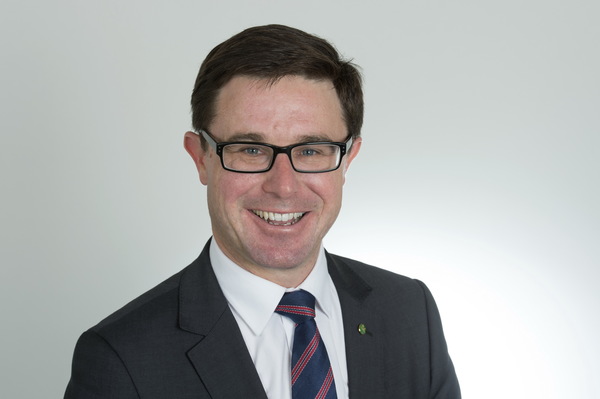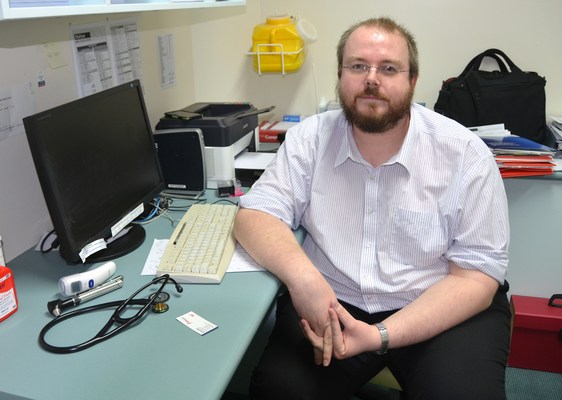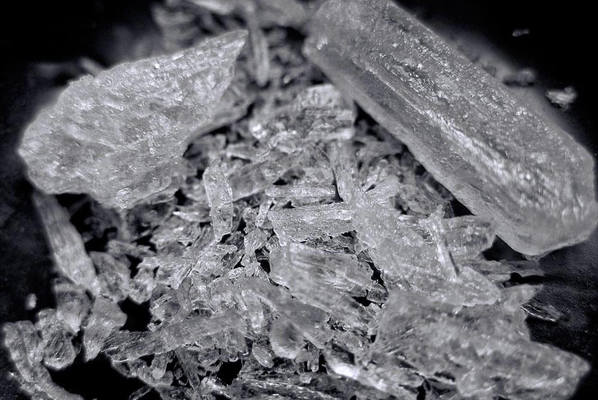By Jeremy Sollars
A young Warwick doctor is working on the frontline in the battle against drug use in the region, as well as helping break down perceptions about mental illness and its link to drugs.
Dr Matt Ruhl is a GP registrar based at Warwick’s Condamine Medical Centre, and as well as his general medical duties he provides care for those trying to free themselves from the vortex of illicit drugs – particularly ice – both in Warwick and in Stanthorpe.
Dr Ruhl, who has “a special interest in addiction medicine”, sees around half a dozen patients fighting substance abuse a week in Warwick and up to a dozen during his fortnightly clinic at Stanthorpe Hospital.
Some patients directly book appointments with Dr Ruhl, while others are referred by Drug ARM and Queensland Health’s Alcohol, Tobacco and Other Drugs (ATODs), and by fellow Condamine Medical Centre doctors.
Like those workers, Dr Ruhl is dealing with the disturbing fallout caused by ice and other drugs – such as heroin and opioids – and likewise believes regional centres like ours are significantly under-resourced when it comes to specialised drug counselling services.
He told the Free Times that around 50 per cent of those with ice and other addictions have an underlying mental health issue, often undiagnosed.
“In my experience, these people will self-treat their mental illness – whether it be anxiety or depression or other conditions – with illicit drugs,” Dr Ruhl said.
“But the added issue with ice is that sustained, heavy use can cause schizophrenia to develop over time with people who have had no previous mental health issues.
“Ice causes psychosis – if you take it infrequently this will wear off, but long-term use runs the risk of permanent psychosis.”
Dr Ruhl treats drug users who have come up against the court system, are in housing, financial and relationship crisis and also those with physical health conditions relating to their using, such as viral infections from injecting.
“What I do initially is a psycho-social assessment, looking at their mental health, drug history and general physical health and develop a tailored management plan for them,” he said.
“If there is a mental health issue underneath and they require care from a psychologist or a psychiatrist, I will arrange that.
“We also look at the detox and rehab options.
“It’s sometimes the case that they drop off from seeing me for a time and then they bounce back.
“Each time they learn a little more about what they’re going through – I have an open-door policy, and I’m always willing to give it another try, if they are.”
Dr Ruhl says government funding for mental health hasn’t kept pace with its growth in the last five or so years, and as far as drug counsellors and social workers go, he says even if the funding was available there’s not enough qualified people to go around, both in metro and regional communities.
Dr Ruhl recommends anyone with an interest in mental health – be they family members or employers – consider doing a course through Mental Health First Aid.
To find out more visit www.mhfa.com.au
Community forum on ice scourge
Federal MP for Maranoa David Littleproud will hold a community forum on the ice scourge next Tuesday night, 6 June, at the Warwick Town Hall, part of a series of forums on ice across the electorate.
“As a father of three boys, this menace scares me because I’ve heard the heart-breaking stories of mums and dads across Maranoa who watch helplessly as their children suffer the horrific consequences of ice; it doesn’t discriminate because addiction to can happen to anyone,” Mr Littleproud said.
“Whether you’re a user, recovering from addiction, family member, medical professional, involved in community support or law enforcement – and everyone in-between – we need an open and honest discussion, and that’s why I will hold the community forum.”
Mr Littleproud said he had already secured the region’s Primary Health Network – the Federal Government’s healthcare local funding facilitator – to attend the forums to make sure community needs were represented in a targeted approach.
“There are more than 200,000 Australians using ice, and I believe the solution lies in getting the right mix of services in each community,” he said.
“Because what works in one community may not be suitable for another region is why a targeted and engaged approach is so important.”
Mr Littleproud said the Federal Government would invest $298 million over four years to combat illicit drug and alcohol use in Australia.
“I want to work with the health, law enforcement and education sectors and communities to develop locally focused action plans to improve both preventative measures and treatment outcomes in Maranoa,” he said.
“These forums about ensuring the unique needs of our rural communities are fairly represented to tackle ice.”
Would you like to know more about these ice forums or would you like to have your say on what topics should be discussed?
Phone Maranoa MP David Littleproud’s office on 4662 2715 or email him at david.littleproud.mp@aph.gov.au
Ice and its fallout
Fact box: What is ‘ice’ and its consequences?
* Also referred to as crystal or crystal meth, ice is the purest and most potent form of methamphetamine and is highly addictive.
* Methamphetamine psychosis – which can last hours or, if symptoms are severe, can last for days – can involve feeling overly suspicious, hearing and seeing things that aren’t real and can result in violent outbursts.
* Apart from being illegal, behaviours associated with ice can cause significant disruption and distress for families, friends and the community. Misuse can play a role in family dysfunction, breakdown and conflict, financial stress and mental health issues.









